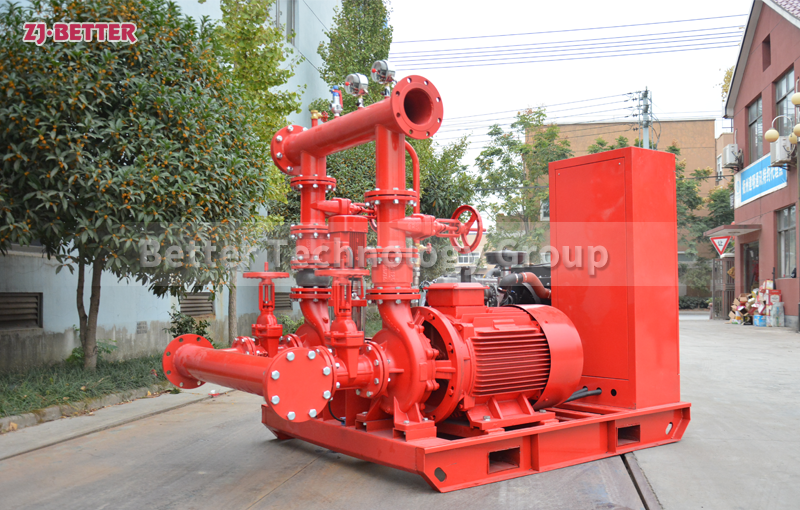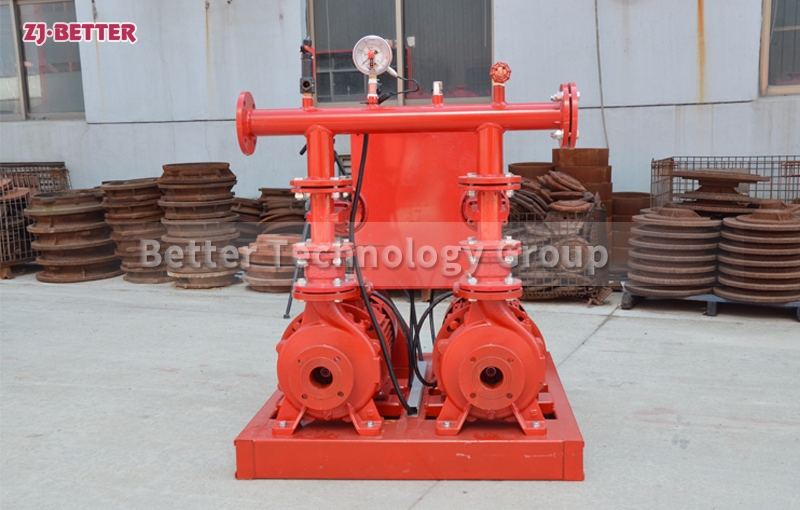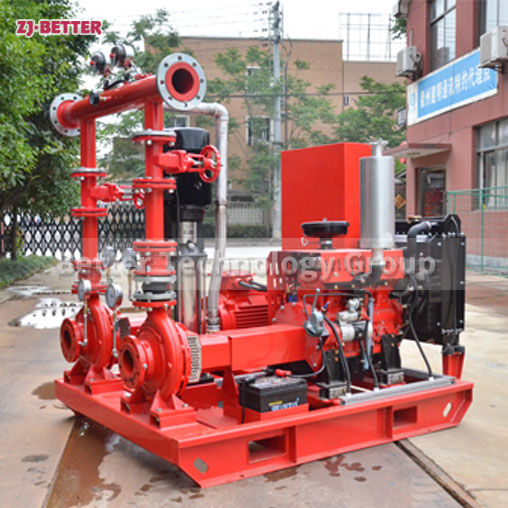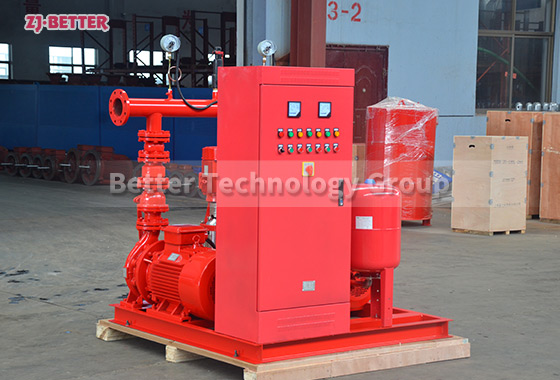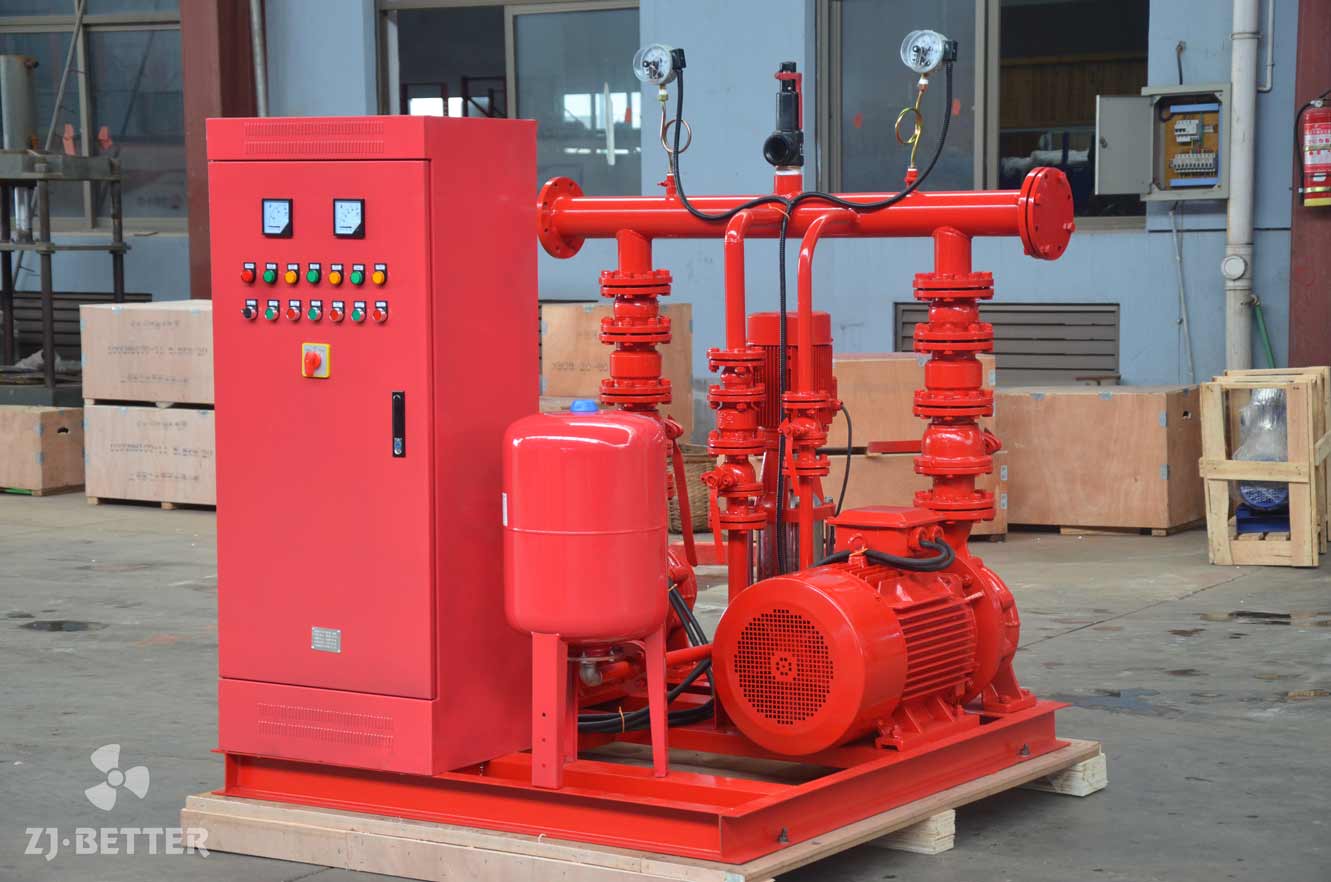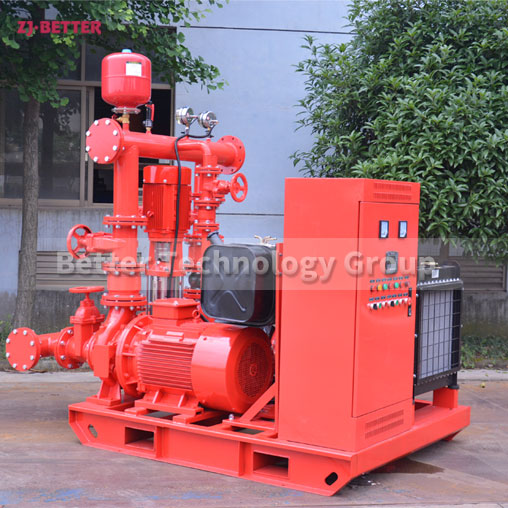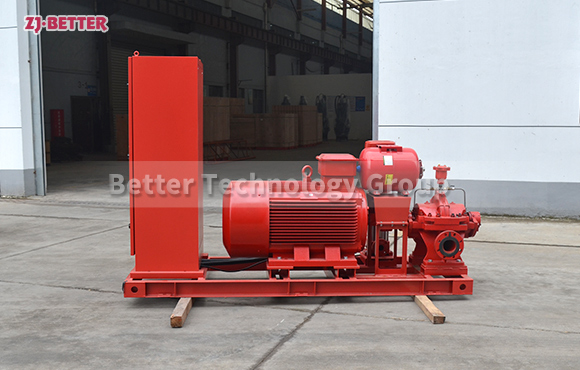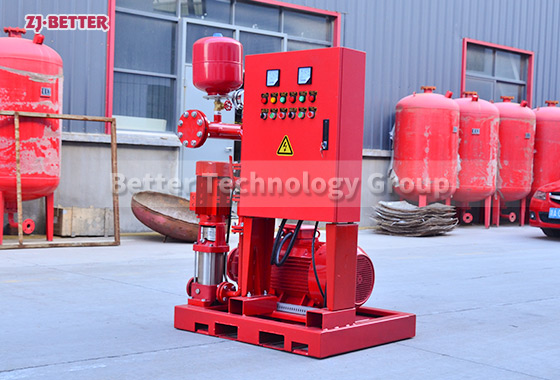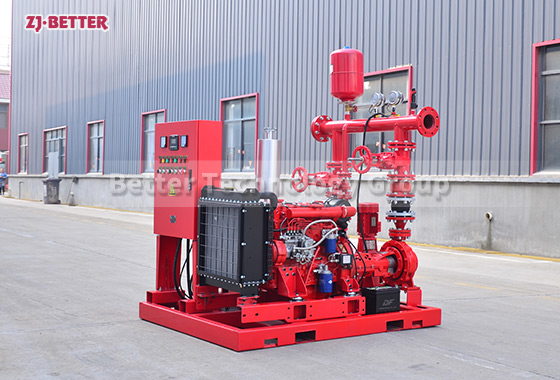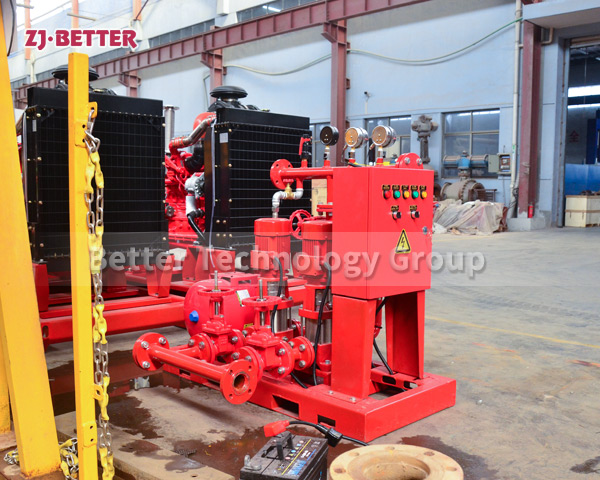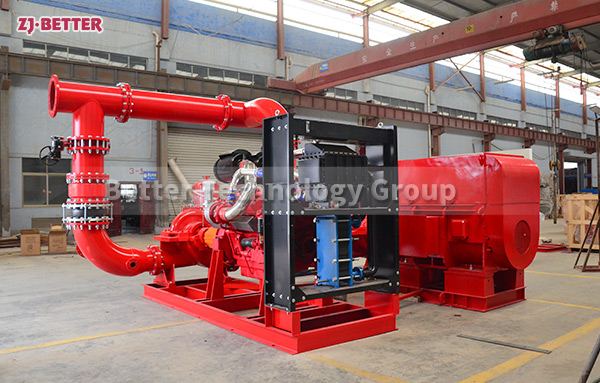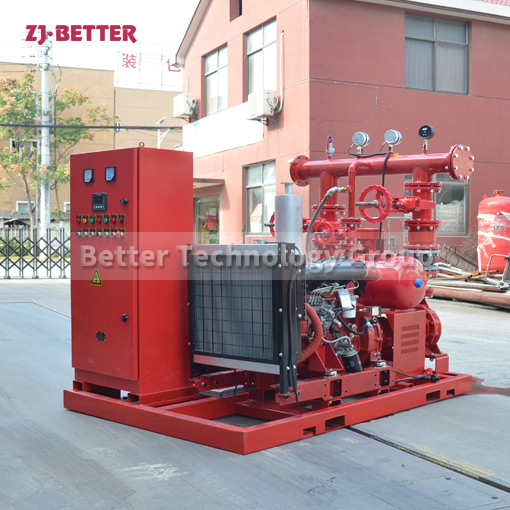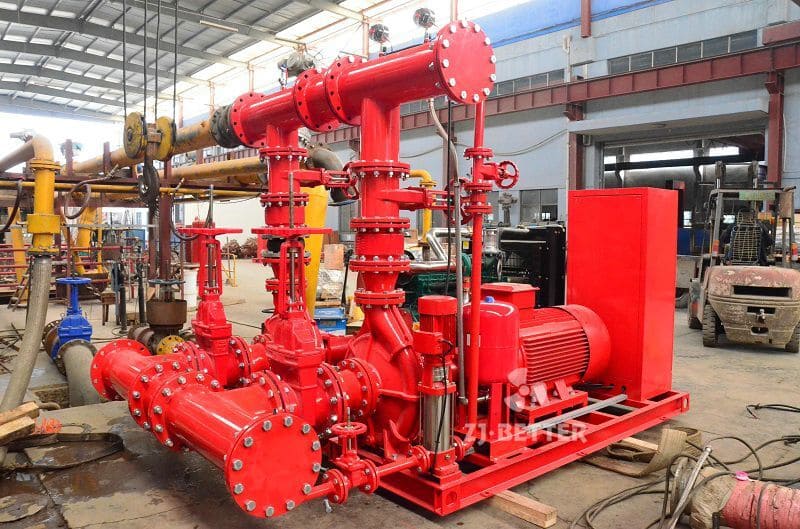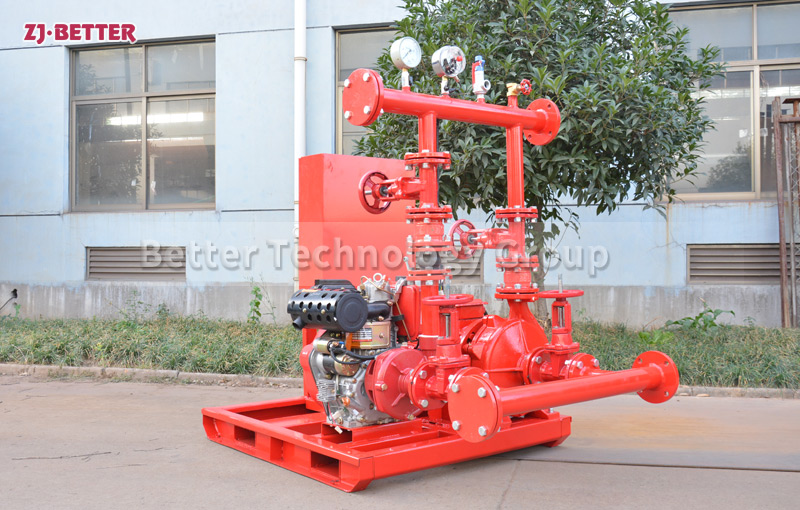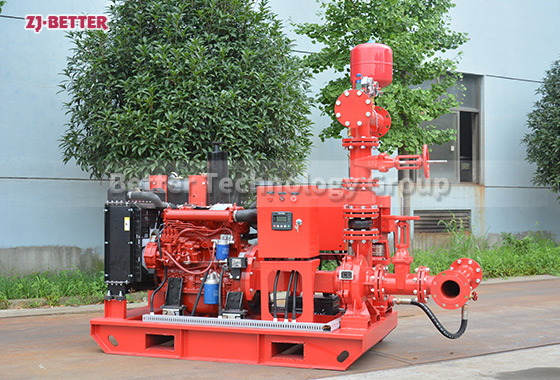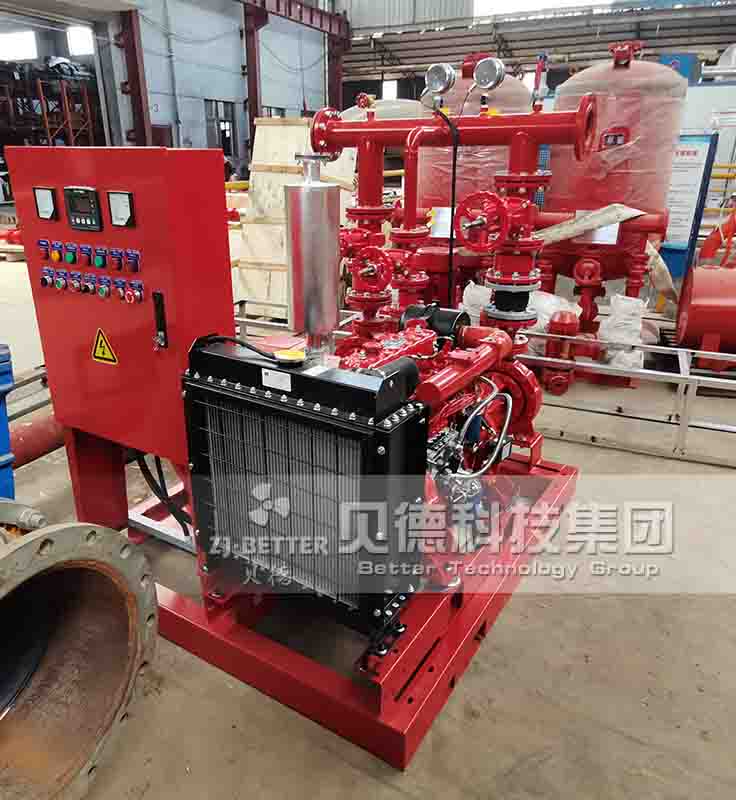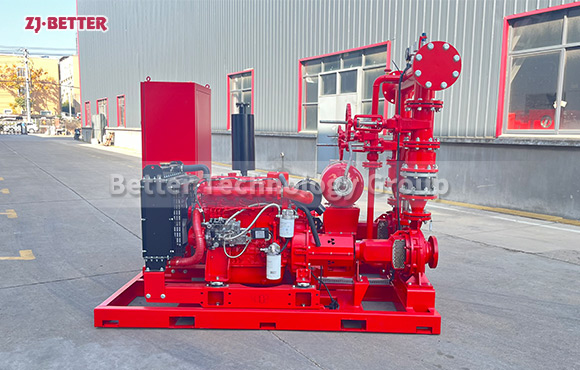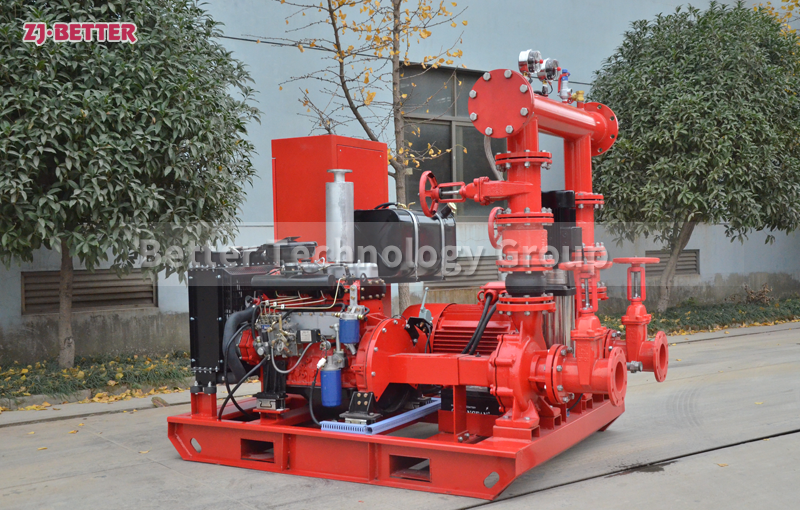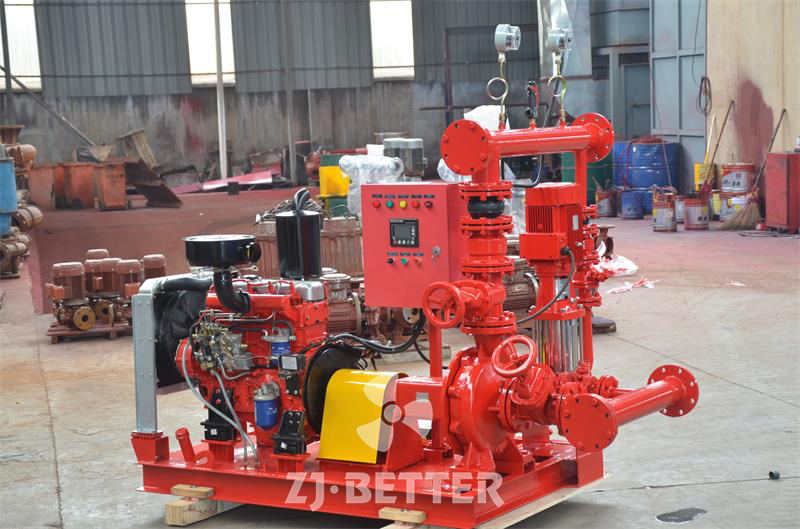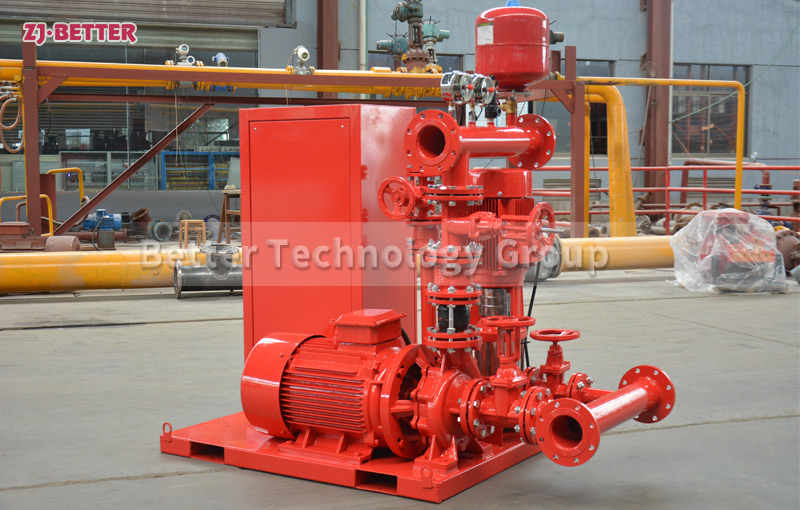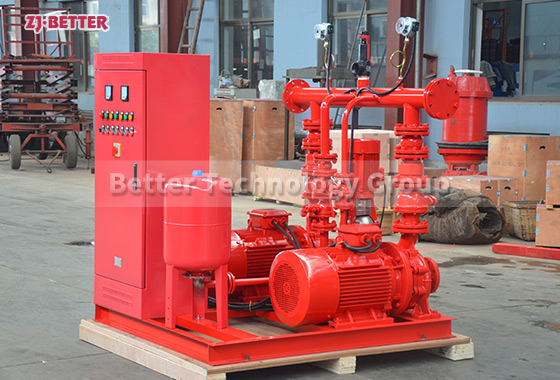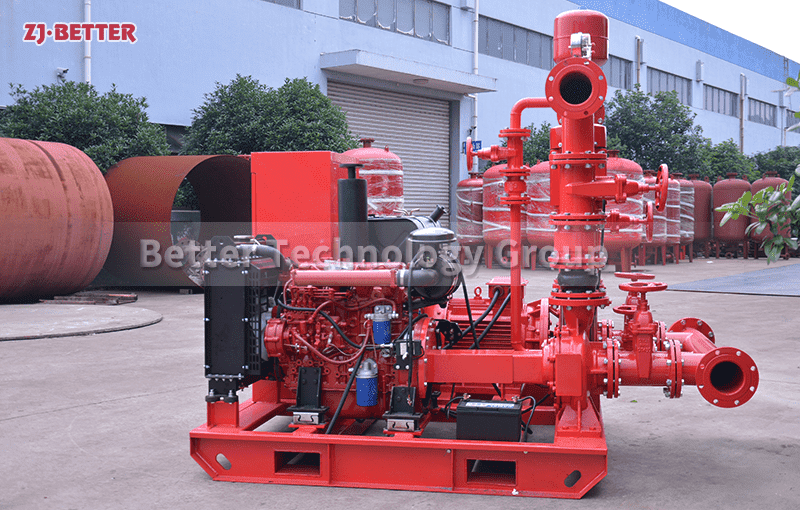What are the characteristics and advantages of diesel engine fire pumps?
Diesel engine fire pump is a kind of fire-fighting equipment that we often see and often use in our life. The diesel engine fire pump has the characteristics of good starting performance, strong overload capacity, compact internal structure, convenient maintenance, simple operation and high degree of automation. It is a very reliable fire fighting equipment.
Main features of diesel engine fire pump:
1. Automatic start: After the diesel water pump diesel generator set receives a safety accident/pipeline network pressure/power failure/or other starting signal, it can automatically start within 15 seconds and operate under load;
2. Automatic charging: the battery can be automatically charged by using the working voltage or the diesel engine battery charging motor to ensure the successful start of the diesel generator set;
3. Fully automatic alarm: automatic alarm maintenance for difficult problems such as low air pressure and high temperature of the diesel engine, alarm and shutdown when the speed is limited;
4. Fully automatic heating: make the diesel engine in the state of heating engine embedded parts to ensure emergency operation;
5. Data transmission mode: 360kw or less diesel water pump diesel generator set adopts professional and leading diesel engine and centrifugal water pump to connect professional ability immediately through flexible coupling, which reduces problems and greatly shortens the start-up time of diesel generator set shortened, improving the reliability and emergency characteristics of diesel generator sets;
6. Consumers can also specify to set other alarm outputs;
7. It has the functions of inspection, remote signaling and control panel.

